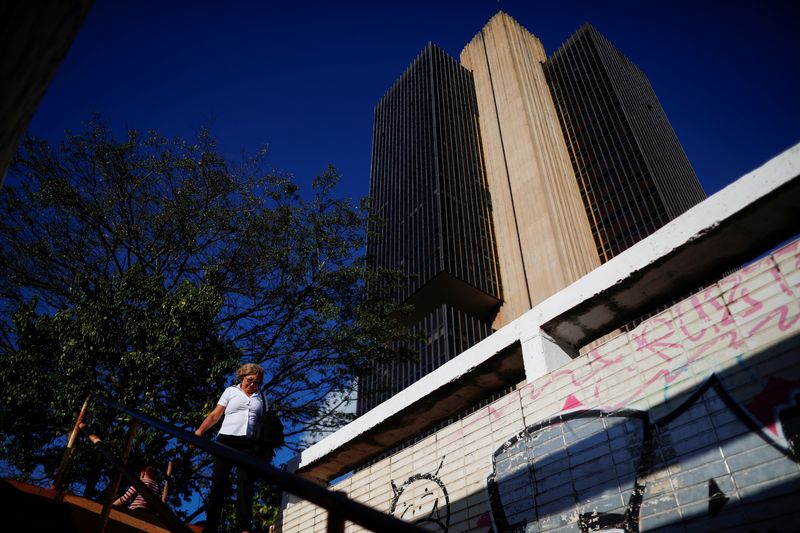BRASILIA (Reuters) - Brazilian economic activity kicked off the second quarter in a downturn, the central bank index showed on Thursday, losing steam in April after the previous month's performance, but still sustaining forecasts of a stronger activity this year.
The IBC-Br economic activity index, a leading indicator of gross domestic product, dropped a seasonally adjusted 0.44% from March.
That came after a 1.09% gain in March from the previous month. Both figures were released late, affected by a strike by central bank workers that ended this week.
Alberto Ramos, an economist at Goldman Sachs (NYSE:GS), said that the numbers support a positive carry-over for the second quarter, which should be further helped by tax cuts and a fast labor market improvement.
"Following the solid expansion of the economy in Q2, we expect the growth to be moderately visibly in Q3 and activity to face increasing headwinds as we approach the end of the year," he wrote in a note to clients, reviewing this year's GDP forecast to 2.1% from 1.6% previously.
At the same time, he downgraded the 2023 growth outlook to 0.7% from 0.8% before.
While industrial output rose slightly in April from March, retail sales beat expectations. Services activity missed market forecasts but still posted some growth.
The IBC-Br index was up 2.23% on a nonseasonally adjusted basis from April 2021, while in the 12 months through April the index grew 3.46%, the central bank said.

Despite high interest rates to battle double-digit inflation, the Brazilian economy has shown more strength than initially projected by the market.
Economy Minister Paulo Guedes recently estimated that Brazil will grow by 2% this year, while the ministry's official forecast points to a 1.5% expansion.